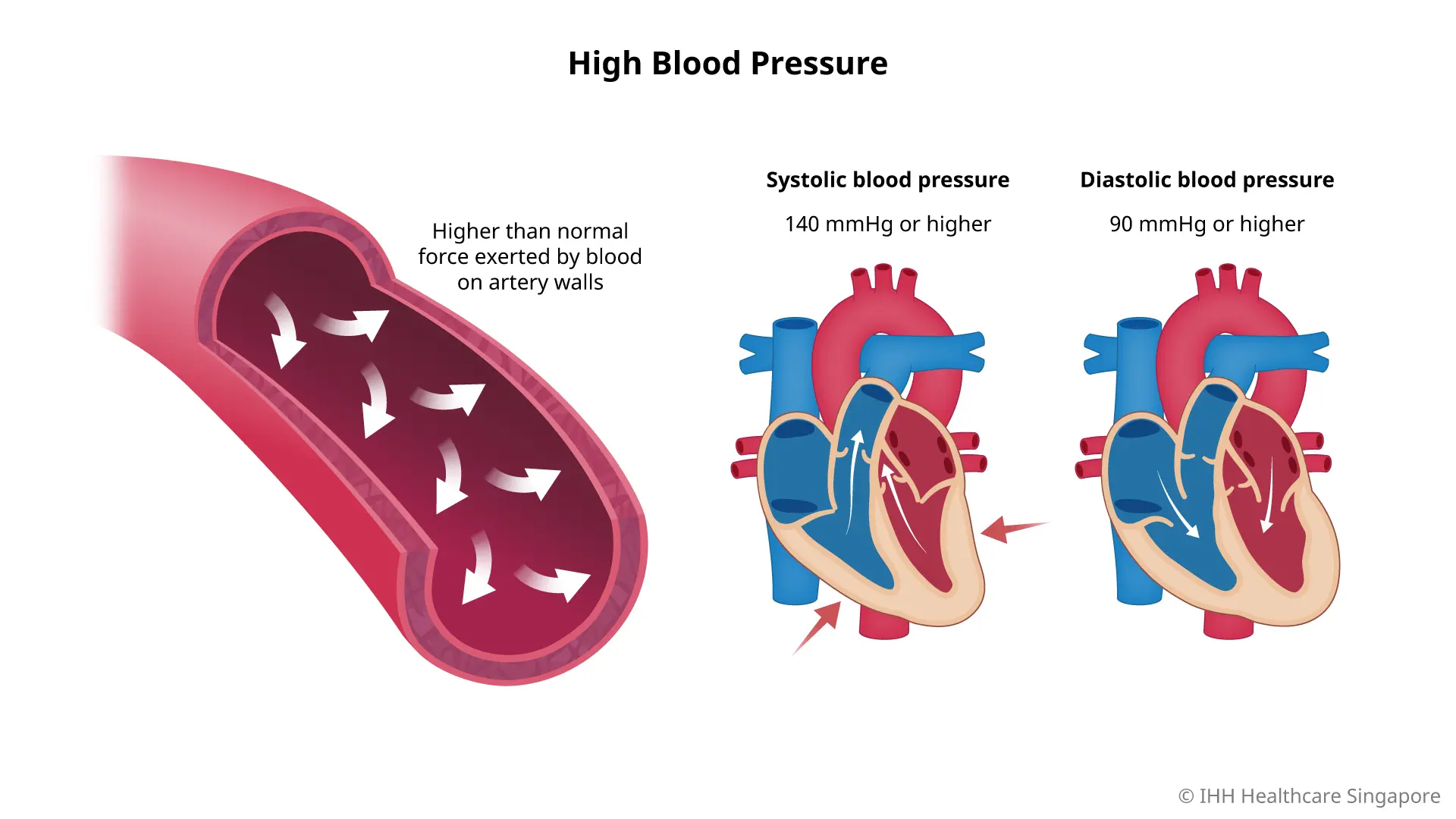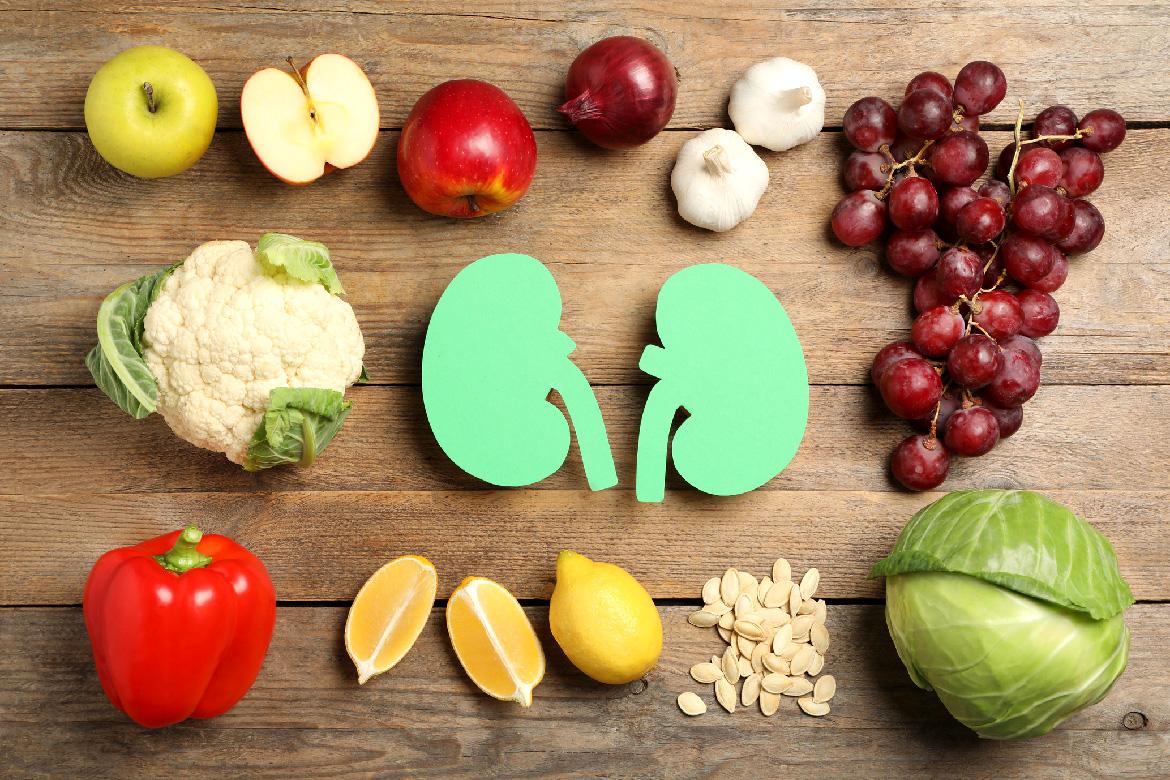-
-
Featured Care Areas

High Blood Pressure (Hypertension)
What is high blood pressure?
High blood pressure, also known as hypertension, is a medical condition in which the blood pressure in the blood vessels is persistently elevated.
Blood pressure is measured in millimetres of mercury (mmHg) and is given by 2 measurements: systolic -- the pressure when the heart beats and pumps blood; and diastolic -- the pressure when the heart relaxes between beats.
What is considered a high blood pressure?
High blood pressure is defined as having a systolic pressure of 140 mmHg or higher, or a diastolic pressure of 90 mmHg or higher, when measured in the doctor's office. When measured at home, high blood pressure is defined as having a systolic pressure of 135mmHg or higher or a diastolic pressure of 85mmhg or higher.
What are the symptoms of high blood pressure?
High blood pressure is often termed the "silent killer" because it typically has no symptoms until it has caused significant damage to the heart and arteries. In some cases, with very high blood pressures, symptoms might include headaches, dizziness, chest pain, palpitations, and nosebleeds, but these are not specific and usually occur once the condition has reached a severe or life-threatening stage.
What causes high blood pressure?
The exact causes of high blood pressure are not always clear, but several factors can increase risk:
- Genetic factors: A family history of high blood pressure increases one's risk
- Age: The risk of high blood pressure increases as you age
- Lifestyle factors: Poor diet (especially high in salt), lack of physical activity and tobacco and alcohol use can contribute
- Obesity: Being overweight or obese can increase your risk
- Stress: Long-term stress can affect blood pressure
- Medical conditions: Kidney disease, diabetes, sleep apnoea and certain hormone derangements
What are the risk factors for high blood pressure?
There are several risk factors that may increase your chances of developing high blood pressure, including:
- Diabetes. This chronic condition may increase your risk of high blood pressure. It causes blood sugar to rise. A fasting blood glucose or sugar level of 126mg/dL or higher is dangerous.
- Obesity. Being overweight or obese requires more blood to supply oxygen and nutrients to your tissues. As the amount of blood circulating through your blood vessels rises, the pressure on your artery walls increases.
- A strong family history of high blood pressure. If you have parents or relatives with high blood pressure, there is a chance you may inherit it.
What are the complications and related diseases of high blood pressure?
High blood pressure can lead to severe health complications, such as the hardening and thickening of the arteries (atherosclerosis), which can lead to a heart attack, stroke, or sometimes death. It can also compromise the blood flow to his extremities which can lead loss of limbs. In addition, high blood pressure also increases the risk of developing irregular heart rhythms and heart failure.
People with high blood pressure are also at a significantly increased risk of developing kidney failure. This is because the high pressure can damage the blood vessels in the kidneys, reducing their ability to function effectively.
How do you prevent high blood pressure?
Preventing high blood pressure involves several lifestyle adjustments:
- Maintain a healthy weight
- Eat a balanced diet: Rich in fruits, vegetables, whole grains, and low in saturated fats and cholesterol
- Reduce salt intake
- Exercise regularly: Aim for at least 150 minutes of moderate aerobic activity or 75 minutes of vigorous activity each week
- Limit alcohol intake: No more than one drink a day for women, two a day for men
- Quit smoking
- Manage stress
This coverage checker is brought to you by Health Insured, an online resource that helps you understand your health coverage in Singapore.
This page has been reviewed by our medical content reviewers.
Need help?
For enquiries, please call
+65 6575 7575
For appointment bookings, please WhatsApp
+65 8111 9777









